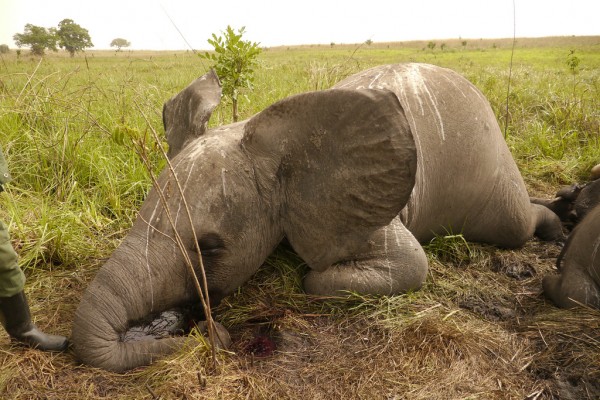By Dane Lorica, | November 28, 2016

Artificial intelligence-powered cameras can help rangers spot and catch poachers. (ENOUGH Project/CC BY-NC-ND 2.0)
Illegal poaching has been one of the major problems confronting wildlife advocates in Kenya. However, with the use of artificial intelligence, arresting poachers and protecting animals has become a little easier.
Like Us on Facebook
Brian Heath, chief executive of the Mara Conservancy, said that the use AI in the region could help anti-poaching efforts. He said that the technology helps rangers identify animals and people easily. "Our rangers now feel completely disadvantaged and blind without it," he added.
A thermal imaging camera is packed with AI making identification of poachers and animals even in a kilometer distance possible. The device placed above the land rover considers an object's shape to distinguish whether it is an approaching poacher or animal. According to authorities, this helpful tool expands the area that rangers can guard.
Despite its benefits, the camera also carries imperfections. For instance, rangers can be wrongly recognized as poachers because of their similar shapes. However, rangers have said that this issue does not affect their work since they know where their colleagues are settled. Heath has been assigned to the Mara Conservancy for 16 years. He admitted that AI has helped him nab tens of thousands of hunters already.
The World Wildlife Fund supports the use of the AI device with drones to catch poachers. In the nine months that the camera has been in use, over a dozen of hunters have been apprehended in Maasai Mara while two poachers were halted in a Kenya national park.
Colby Loucks of WWF's Wildlife Crime Technology Project said that poachers can no longer hide in the dark because "wildlife rangers now have the help they've desperately needed. This groundbreaking technology allows them to search for poachers 24 hours a day, from up to a mile away, in pitch darkness. It's upping the game in our fight to stop wildlife crime across the region."
The use of artificial intelligence would go a long way to deter and catch poachers who intrude in protected parks. WWF has received $5 million grant from Google.org to employ this AI-powered device to protect wildlife.
-
Use of Coronavirus Pandemic Drones Raises Privacy Concerns: Drones Spread Fear, Local Officials Say

-
Coronavirus Hampers The Delivery Of Lockheed Martin F-35 Stealth Fighters For 2020

-
Instagram Speeds Up Plans to Add Account Memorialization Feature Due to COVID-19 Deaths

-
NASA: Perseverance Plans to Bring 'Mars Rock' to Earth in 2031

-
600 Dead And 3,000 In The Hospital as Iranians Believed Drinking High-Concentrations of Alcohol Can Cure The Coronavirus

-
600 Dead And 3,000 In The Hospital as Iranians Believed Drinking High-Concentrations of Alcohol Can Cure The Coronavirus

-
COVID-19: Doctors, Nurses Use Virtual Reality to Learn New Skills in Treating Coronavirus Patients







